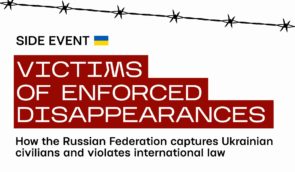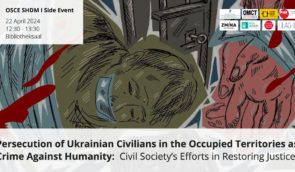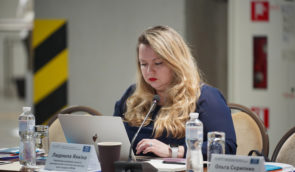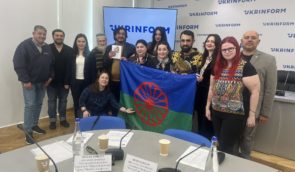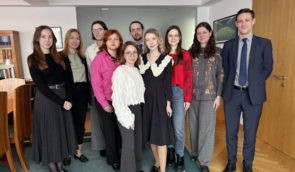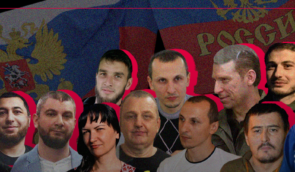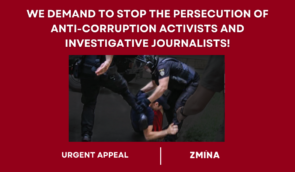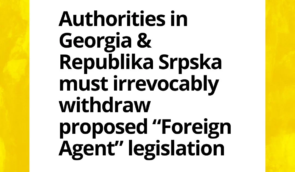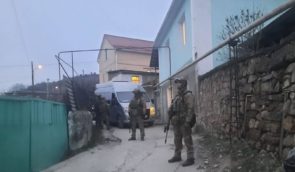OSCE releases report on war in Ukraine with materials provided by Ukraine 5 AM Coalition
Materials documented and submitted by the Coalition of NGOs “Ukraine 5 AM” were used by OSCE experts within the framework of the Moscow Mechanism.
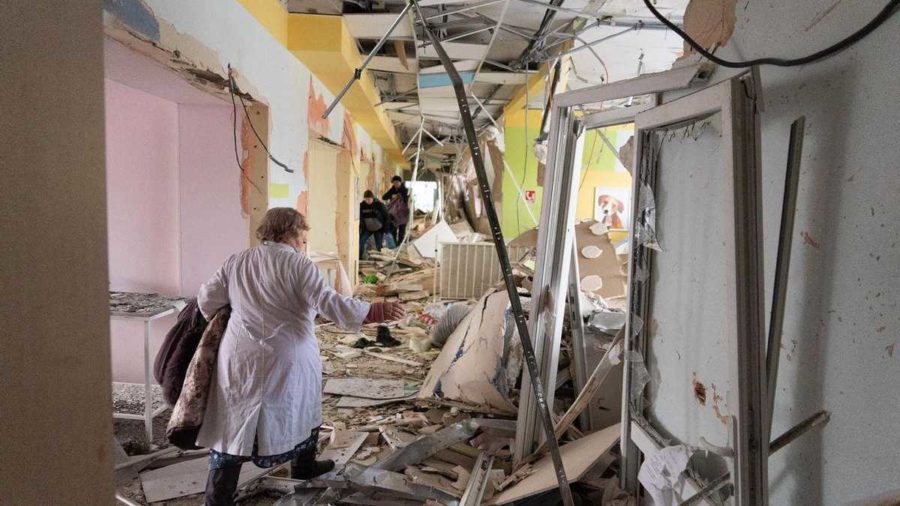
This is stated in the published report.
The document covers the events in Ukraine after the beginning of a large-scale Russian invasion, from 24 February to 1 April 2022. It is based on official reports from the Ukrainian authorities, the Ukrainian Parliament Commissioner for Human Rights, Ukrainian and foreign human rights organizations, and international organizations. The Mission also contacted the Russian Permanent Representation to the OSCE requesting to provide information. However, the Representation responded that “Russia considers the Moscow Mechanism to be outdated and obsolete” and therefore refused to nominate a liaison person.
The report highlights the violations of international humanitarian law and war crimes committed in the territory of Ukraine following a large-scale Russian invasion: the treatment of persons detained or held captive by the enemy; treatment of the wounded, sick; crimes against civilians; enforced disappearances; extrajudicial executions; looting; deportation; conscription of Ukrainian citizens for military service of the enemy; sieges and humanitarian corridors; targeted attacks on civilians and civilian objects; use of human shields; attacks on medical units and vehicles; attacks on nuclear power plants; destruction of cultural heritage; use of prohibited weapons; illegal methods of warfare, other issues.
“This is the first comprehensive report on the situation in Ukraine prepared by an international body. Usually, other bodies begin to refer in the future to previously defined positions. In addition, the events documented in such reports usually become a generally accepted fact,” said human rights activist Anastasiya Martynovska.
As a reminder, in March, the Coalition of NGOs “Ukraine 5 AM” submitted evidence of war crimes to OSCE experts within the framework of the Moscow Mechanism.
The information documented and submitted by the Coalition includes: indiscriminate shelling and premeditated killings of civilians; strikes on civilian facilities, housing neighbourhoods, kindergartens, schools, etc.; targeted attacks on hospitals, dispensaries, hospices, medical staff; obstruction of medical staff’s duties; cases of illegal detention, torture, and ill-treatment of civilians detained in the territories occupied by Russia; harassment (beatings, executions) of civilians and the use of tear gas against unarmed civilians who took part in peaceful assemblies in the territories occupied by Russia (e.g., near local council buildings); persecution of vulnerable groups, including women, children, LGBT people, HIV-positive people, people with disabilities, and the elderly; other facts.
Background. The Moscow Mechanism is an OSCE procedure that allows for the deployment of a short-term international fact-finding mission to address a specific human rights issue in the OSCE region. This mechanism is called “Moscow” because it was adopted during a meeting of the Conference on Security and Cooperation in Europe in Moscow in 1991.
The Moscow Mechanism to address the human rights and humanitarian impacts of Russia’s aggression against Ukraine was invoked on 3 March 2022 after consultations between Ukraine and 45 OSCE participating States. Its goal is to “address the human rights and humanitarian impacts of the Russian Federation’s invasion and acts of war, supported by Belarus, on the people of Ukraine, within Ukraine’s internationally recognized borders and territorial waters.”
It is planned to establish a short-term mission to establish facts to be reflected in the mission’s report. The mission’s activity is provided for by the OSCE Office for Democratic Institutions and Human Rights in Warsaw.
Ukraine selected three people from the list of experts to be part of the mission: Marco Sassoli, Professor of International Law, University of Geneva; Wolfgang Benedek, University Professor ret. of International Law, University of Graz; Veronika Bílková, Associate Professor, Faculty of Law, Charles University in Prague. The experts started working on 15 March 2022.
The Moscow Mechanism was previously invoked in 2020 to examine alleged human rights violations in Belarus.
The Moscow Mechanism was also invoked in 1992 over the events in Croatia and Bosnia. In February 1993, the fact-finding mission recommended that an international criminal tribunal for the former Yugoslavia should be established. Sweden, which chaired the (then) CSCE, submitted a proposal to the UN. Four months later, the International Criminal Tribunal for the Former Yugoslavia was established.

